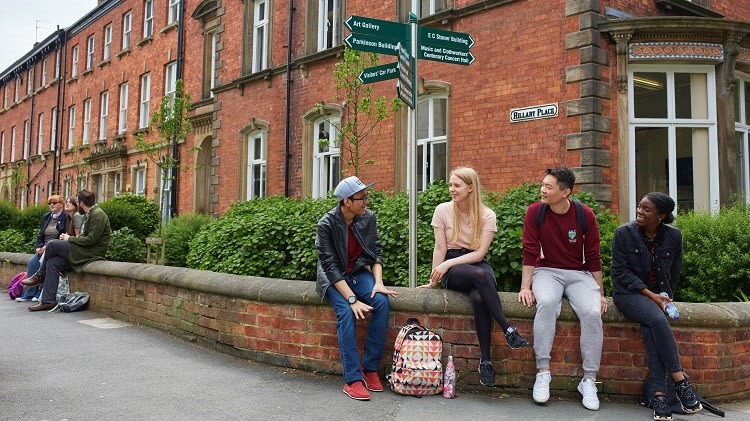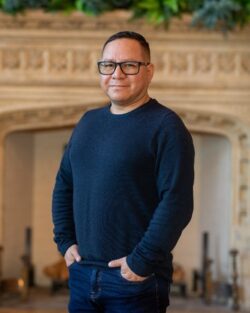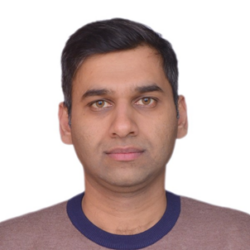Multimodality and Language Education Research Symposium

- Date
- Thursday 25 April 2024, 12:30-2:30pm
- Location
- 28 University Road LT (G.23)
Thursday 25th April 2024, 12:30-2:30pm - 28 University Road LT (G.23)
This mini-symposium brings together research interests of the Centre for Language Education Research (School of Education) and Multimodality (Language@Leeds satellite) to explore methodological, analytical and pedagogical opportunities of researching multimodally. The event puts into a conversation two research projects. One is concerned with capturing communication practices in a diverse city, the other showcases communication practices in the language classroom. Followed by the contributions from discussants and audience participants, this symposium is an opportunity to reflect on broader affordances of multimodal approaches in future language education inquiry. All welcome to attend, but registration is essential.
Talk 1: Mapping the sounds, images, voices, languages and cultures of the diver[city]; Dr Yecid Ortega, Queen’s University Belfast
Talk 2: Digital Multimodal Composition in English Language Class: Inclusion and Assessment in Pakistani ESL Context; Mr Adeel Khalid, International Islamic University (IIU), Islamabad.
Discussants: Dr Elisabetta Adami, Dr Huahui Zhao
To register for this event, please complete this form.
More Details:
Talk 1: Mapping the sounds, images, voices, languages and cultures of the diver[city]
Urban cities are inhabited by vibrant communities that share their cultures and languages. I hear many languages on the streets and see them displayed on billboards, advertisements, cafés and restaurant menus on the windows etc. Guided by complexity theory (Guastello et al., 2009), Plurilingualism/Pluriculturalism (Piccardo, 2017), and pluriversal politics (Escobar, 2020), this project aims to create awareness of the cultures and languages that inhabit the cities by showcasing the cultural and linguistic diversity. I immersed myself in the different spaces and streets of the city (this project ~ Belfast, Northern Ireland, United Kingdom) through long walks to capture the diverse images, voices and sounds to understand the different plural dimensions between human beings, cultures and languages. In doing so, I used audio-visual research approaches such as sound ethnography (Carlyle, 2007), walking methodology (Springgay & Truman, 2017), and linguistic landscaping (Shohamy & Gorter, 2009) as a soundscape walking methodology (SWM). I documented my experiences by using audio recording devices, photographs and field notes. Then, I mapped out the collected data on a public multimedia and multi-modal platform as a form to create a pluriversal awareness of the city, specifically to celebrate those languages other than English and how they cohabit. Findings from the data suggest that the city is not an isolated and siloed space but a sentient living being in which languages and cultures emerge, interweave and synergically live together bringing life to communities and providing spaces for learning and understanding about others. Ultimately, this research hopes to motivate researchers in the field of applied linguistics to promote the importance of cultures and languages at the centre of pedagogical approaches to amplify the knowledges of plurilingual communities and celebrate their identities (Ortega & Oxford, 2023).
Yecid Ortega is an assistant professor in the School of Social Sciences, Education, and Social Work at Queen’s University Belfast (Northern Ireland, United Kingdom), where he teaches graduate classes in TESOL and Applied Linguistics. He finished his doctoral program in Language and Literacies Education (LLE) with a collaborative specialization in Comparative International, and Development Education (CIDE) at OISE – University of Toronto (Canada). He has over 20 years of international experience (Colombia, the USA, Canada and the UK) in the field of language education and plurilingualism. He explores the linguistic and cultural lived experiences of migrant communities and the ways in which they assert their identities while integrating and resettling into the receiving societies. He currently focuses on alternative forms of research including but not limited to arts-based, creative, critical, and post-material methodologies to understand one’s place in the world.

Talk 2: Digital Multimodal Composition in English Language Class: Inclusion and Assessment in Pakistani ESL Context
The inclusion of Digital Multimodal Composing (DMC) in English as a Second Language (ESL) classrooms has emerged as a new genre of practice in academic writing, but little is known about how to develop and design a multimodal task for composing (Polio & Yoon, 2021). Research scholars in the pioneering studies of composition and computers argue that academic writers must be prepared for unique experiences in this digital world as the world is changing at a rapid pace, those experiences that we have never had (Passions Pedagogies and 21st Century Technologies, 1999). These unique experiences involve writing and reading multimodal texts in today’s digital communication. The writers have been reading and writing a wide selection of multimodal texts in the ESL context, such as blogs, websites, digital stories, electronic posters, digital timelines, video documentaries, podcasts, graphic novels, and PowerPoint slides. This presentation will showcase how multimodal composing practices allow students to develop multiliteracy and creative skills as a multidisciplinary point for holistic student engagement. It will introduce participants with digital instructional techniques and a range of technological tools to compose several genres of writing that are translingual, transdisciplinary, and transnational.
Mr. Adeel Khalid is pursuing his Ph.D. in applied linguistics specializing in digital multimodal composition studies in ESL from International Islamic University (IIU), Islamabad under HEC Faculty Development Program and is currently pursuing his doctoral research at the School of Languages, Cultures and Societies, University of Leeds, U.K. as a visiting doctoral scholar.
His research interests include affordances in digital media writing in ESL classrooms, multiliteracies, language documentation through oral history, and multimodal authoring paths, specifically for an academically diversified group of students.

